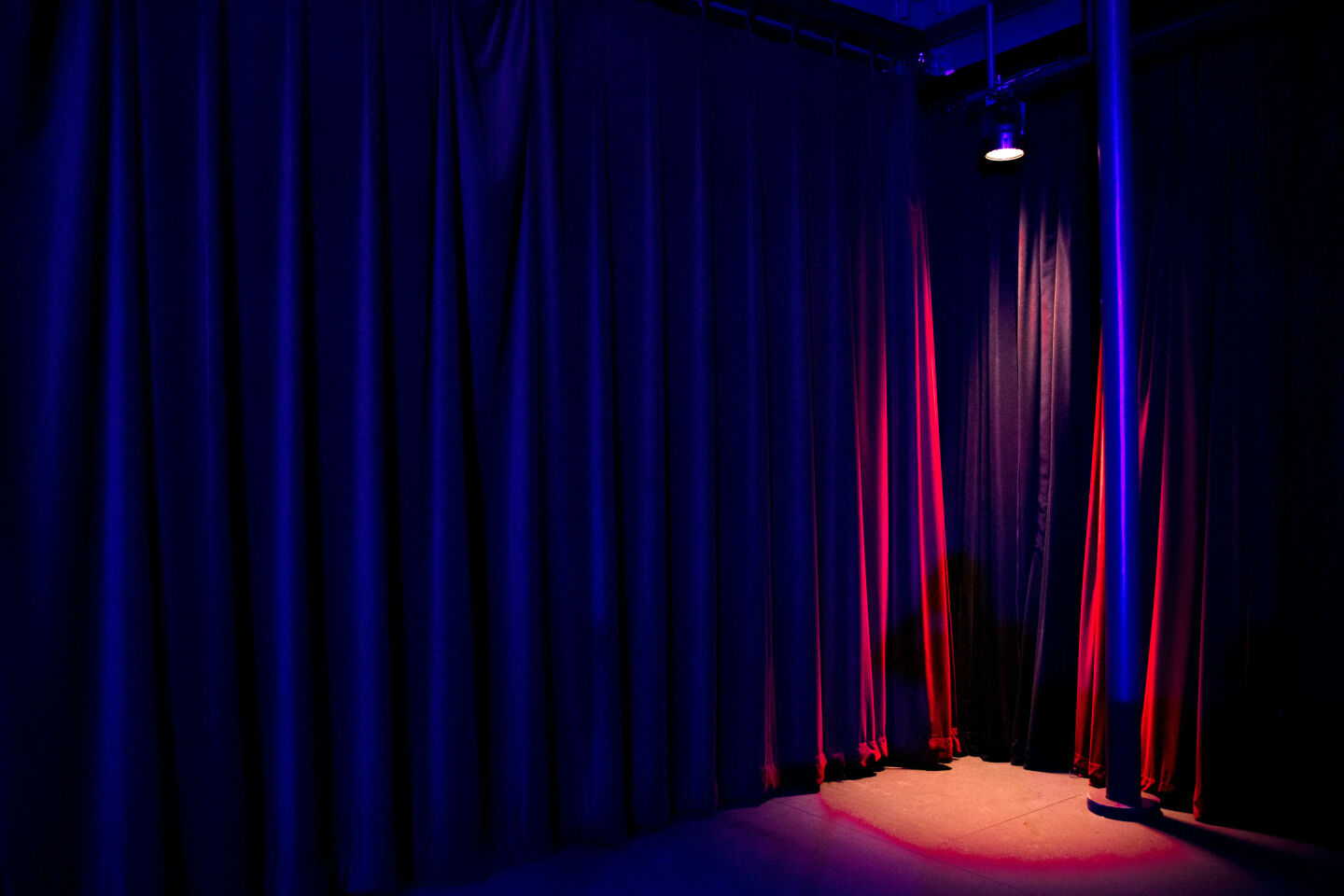
Lights Out
revenue loss, furloughs, & closures have shaken the local art world – yet Chippewa Valley arts venues get creative & march forward
Tom Giffey, Eric Christenson, Rebecca Mennecke, photos by Andrea Paulseth, Joel Pearish
... It’s been a tough year for music venues, theaters, galleries, and the artists that fill those places with joy and passion. In fact, it might be the worst ever. For the last six months, the COVID-19 pandemic has flattened the typically-thriving Chippewa Valley arts scene, and all but forced it to go dark.
Gathering for the sake of art isn’t just a pass time, it’s its own category of the human experience. And we’ve had to learn to live in that darkness, with few signs of relief on the horizon. “Art is the heart and soul of a community,” said Jo Ellen Burke, president of the Eau Claire Public Arts Council. “Keeping a community healthy requires respect for the importance of art – for joy, for inspiration, for healing, and for connecting with others.” Despite everything bad in the world, hope persists.
All over the Valley, artists and facilitators are switching up the game plan, getting creative – it’s kinda what they do best – and finding new ways to connect until we can all be together again. We spoke to people all over the local arts scene about their paths forward, around, and through this phase – and what gives them the hope to keep moving forward.
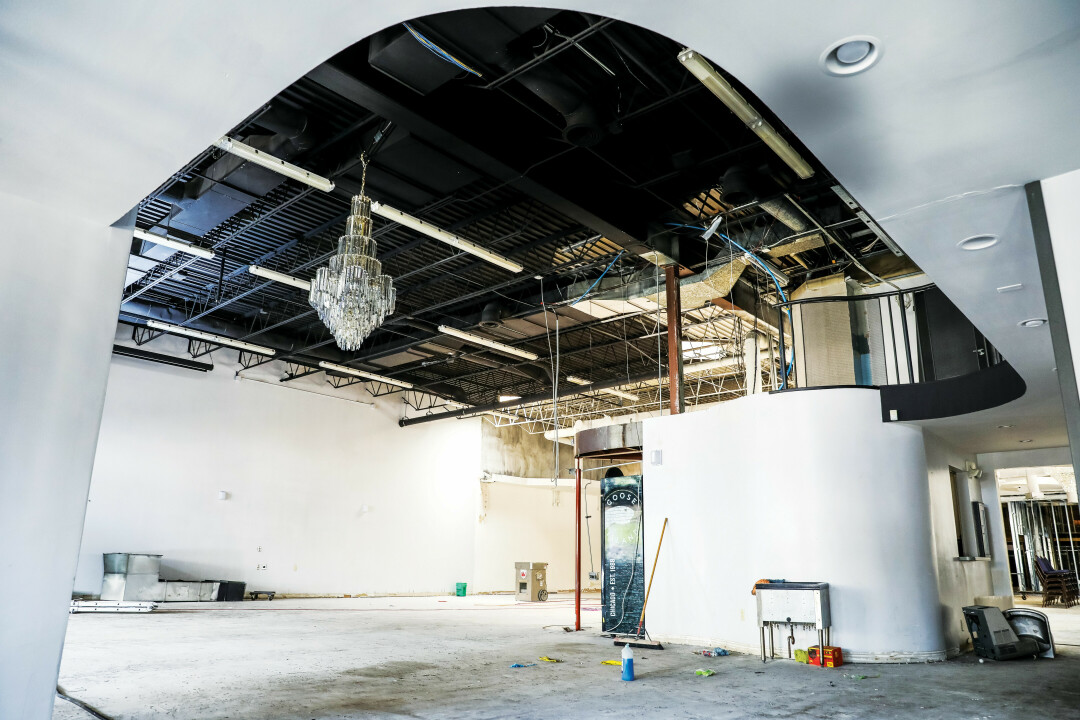
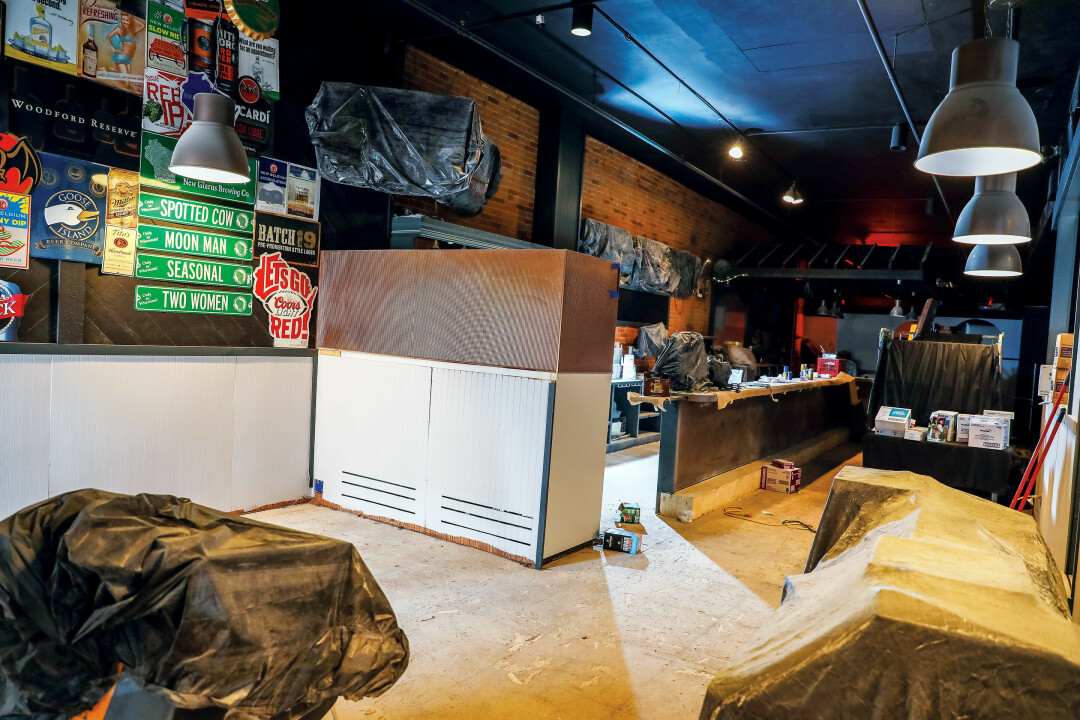
In mid-March, the lights went out on the music world. And at The Plus in downtown Eau Claire, they had just installed new ones: A sparkling new stage lighting fixture was installed on a Sunday, and by the end of the week, the state of Wisconsin went into lockdown – which hit bars, restaurants, and gathering places like The Plus the hardest.
The lights were a cherry on top of a number of fresh renovations completed pre-pandemic at the restaurant and venue, which included new floors and a new stage configuration for the dining room. Now, six months later, it all sits. Owner Benny Haas and Cullen Ryan – event booker for The Plus – had shows lined up through November including Brother Ali, Open Mike Eagle, Eddie Pepitone, Emily Blue, Neil Hamburger, Mr. Chair – all of them are now scrapped.
“We’re at a crossroads of five different rocky paths,” Ryan said.
“And we’re all barefoot,” Haas added.
While comedy shows, live music, open mics, and pizza-to-share are The Plus’ bread and butter, they’ve had to get creative – like so many others – to survive.
Almost immediately, The Plus used its supply chain to set up a small grocery, selling food, supplies, dry goods, and bottles of wine from The Rev next door. The Plus’ ability to sell beer for off-premises consumption certainly helped things, too.
But it’s a daily struggle – finding that balance between life and death when the future is still so murky. The Plus is making some upgrades in the meantime – more new floors, renovated bathrooms, an updated sound system – so that when things come back, they come back stronger than ever.
Haas’ sister venue, The Metro, is a different story completely, yet the same ethos is at play. On Feb. 22, a grease fire broke out in the kitchen at The Metro forcing the newly remodeled event venue to close indefinitely. And that was a whole month before a culture-shifting pandemic really dug in. Shows were called off, schedules were scrapped. Of the 20 weddings booked at The Metro this summer, three were rescheduled for the future; the rest had their deposits returned.
But, without the pressure to hastily return, major reconstruction is underway – knocking out walls, cleaning up smoke damage, and prepping the venue for its next evolution. What used to be a 490-cap space will soon be 1,200 – comparable in breadth to First Avenue in Minneapolis. Music venues, it seems, move forward.
Outdoor spots like Together Farms and Autumn Harvest Winery have kept local musicians busy all summer long performing al fresco and socially distanced. Meanwhile, Eau Claire DIY venue The Barnacle has been keeping the scene alive, inviting local bands to perform for live-streamed fundraisers benefiting different social justice causes and community aid.
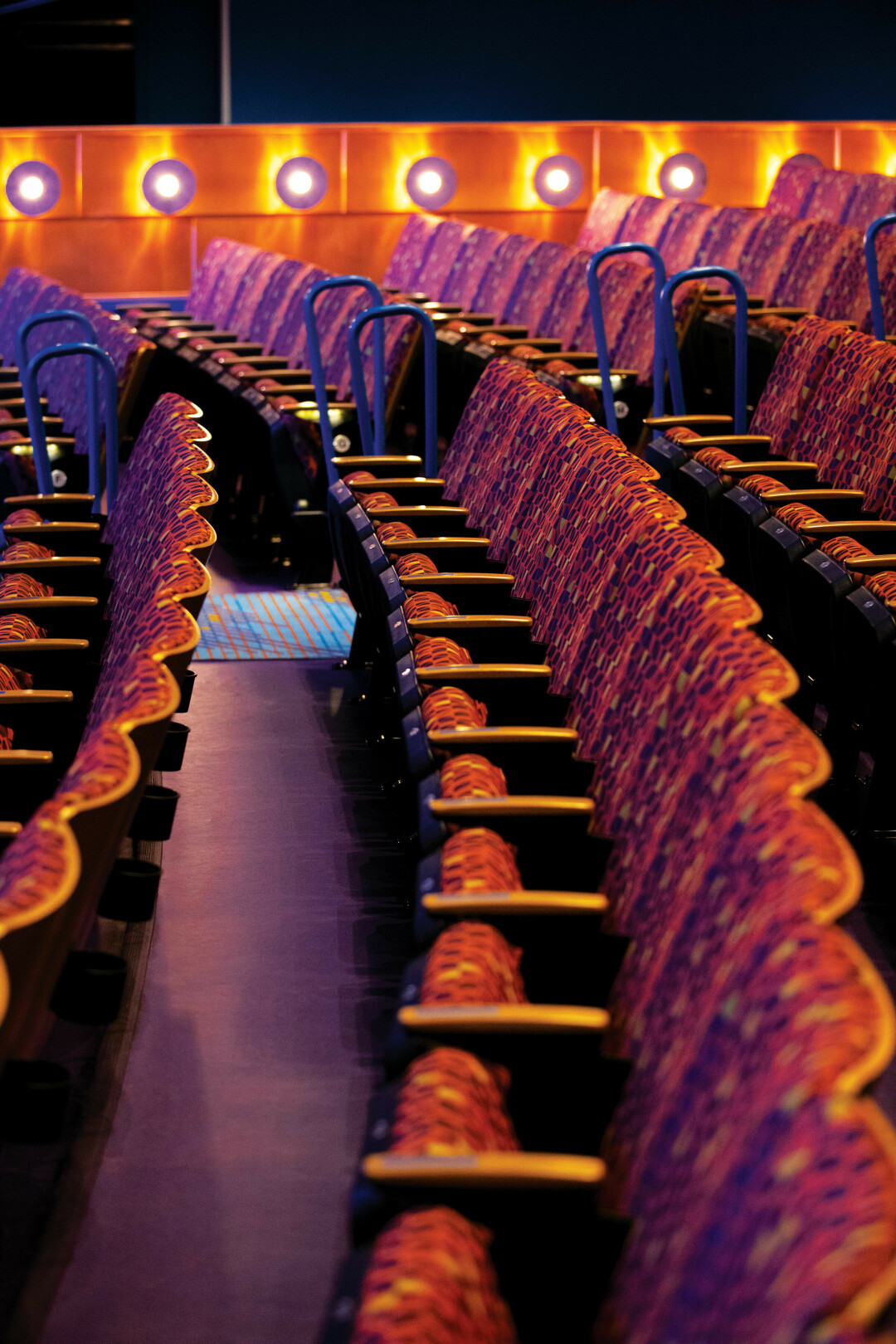
Likewise, the Pablo Center at the Confluence – when it’s not doing community fundraising of its own or advocating fiercely on behalf of venues across the nation – has used its considerable facilities, lighting, and gear for a rather unique series of live-streamed concerts, “Pablo Streams.”
Over several installments this summer, Pablo dolled up its Jamf Theatre with lights, sound, and music for the streams, which looked and felt like honest-to-goodness, true-to-form live music shows. The only missing factor was the audience, who watched and tipped artists from the comforts of their own homes while bands played songs back to back from across the room. For Director of Artistic Programming Evan Middlesworth, that return to “normal” of setting up and executing shows – even virtually – packed an emotional punch.
”
It means everything to me. It's why I do what I do.
Evan Middlesworth
Director of Artistic Programming,
Pablo Center at the Confluence
“It means everything to me. It’s why I do what I do,” he said. “Setting up shows, seeing and hearing the buzz of activity beforehand, crew members climbing around the stage, musicians running last minute bits of songs and joking around before a show ... I love all that stuff and missed it dearly.”
Pablo Streams was made infinitely cooler by bypassing the Facebooks and Instagrams of the world in favor of Perigon, a streaming platform developed by Eau Claire software company WIN Technology. With the help of WIN, the shows were captured by eight different cameras and the theater’s state-of-the-art sound system.
While the pandemic, recession, and other nefarious unknowns threaten the livelihoods of the people and places where music happens, the beat goes on. Music is love. And love finds a way.
* * *
Throughout 2020, many local theater venues and organizations had one collective thought: “This is not real, it’ll pass,” said Jeff McSweeney, who until last month was executive director of the Mabel Tainter Theater. “And then the dominoes just kept falling.”
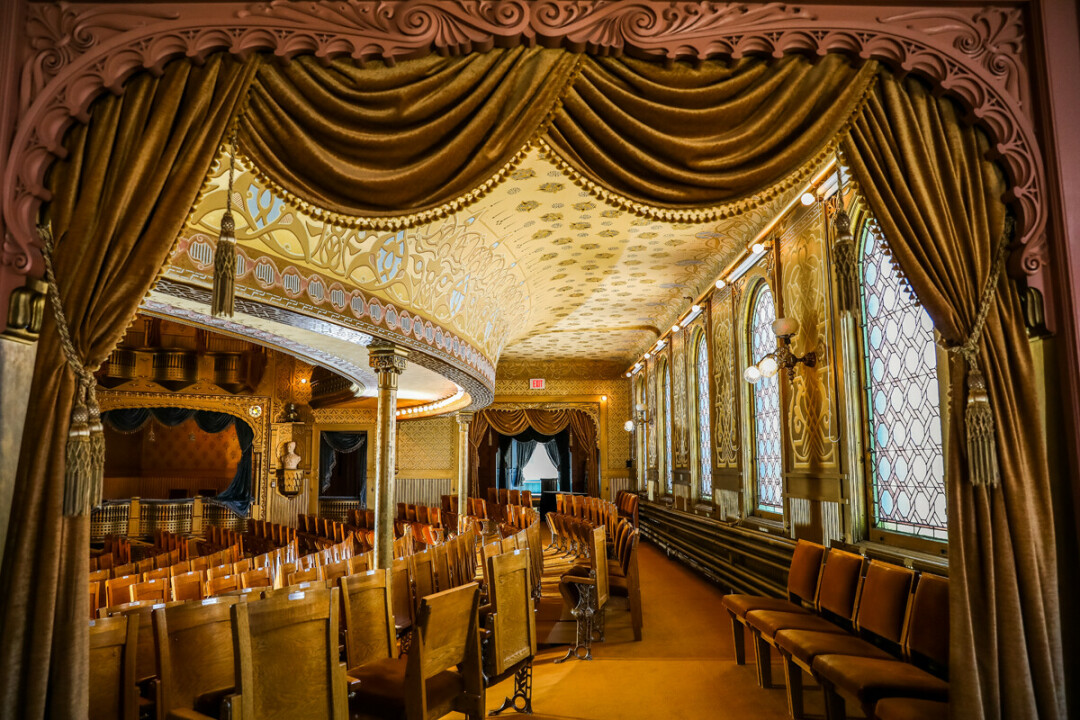
Chief of their concerns is the financial impact of the pandemic on their facilities. Without their revenue – which comes primarily through performance ticket sales – many theater venues have had to furlough and cut staff, apply for grants and loans, refinance mortgages, and cut back to the bare bones. That isn’t the extent of the damage.
For example, the Mabel Tainter Theater in Menomonie – which recently celebrated its 130th anniversary – hosts some 40-50 performances, private events, and weddings every year. All that brings some 12,000 people through the doors annually and creates an $8 million economic impact to downtown Menomonie, according to McSweeney. This impact has been severely reduced because of the pandemic. The concern for the future of theater venues like the Mabel is real – and scary. “What do you do with an 130-year-old building?” McSweeney said. “What happens if any of us run out of money tomorrow? … Nobody wants to talk about it. I don’t want to talk about it.”
What do you do with a 130-year-old building? What happens if any of us run out of money tomorrow? ... Nobody wants to talk about it. I don't want to talk about it.
Jeff McSweeny
Director - Mabel Tainter Theater
So how long will it be until theaters can reopen? Unlike local businesses and restaurants that can offer curbside options, “there are no options for live events,” said Wayne Marek, executive director of the Eau Claire Children’s Theatre. “There is no curbside for that.”
The Mabel Tainter determined to reschedule and postpone all performances until at least November, offering limited tours in the meantime. The Chippewa Valley Theatre Guild has postponed all performances to 2021. By contrast, the Eau Claire Children’s Theatre decided to proceed with temperature checks, performers wearing clear face masks, hand sanitizer, and social distancing measures in place – as well as only half their ordinary crowds.
“Is it comfortable and awesome?” Marek asked. “No. Of course it’s not. The alternative is that you don’t get to do anything. People would rather have the opportunity to perform safely than not do it at all.”
As did thousands of other small businesses and nonprofits, the Pablo Center at the Confluence initially benefited from the federal Paycheck Protection Program, which helped it meet payroll for eight weeks. After that, however, “You’re back to the hard operating cash and you have no revenue stream to offset that,” explained Executive Director Jason Jon Anderson.
“For live event venues or sporting venues, there’s not a magic fix,” Anderson said. “Streaming entertainment is not going to be a financial fix. It helps people escape, but it will never replace 25 shows a month of a packed facility and concession sales and merch sales and the whole economic engine turning.”
In early August, the Pablo Center announced the Bridge Campaign, an effort to raise $500,000 to bridge the institution’s financial needs until December. As of the beginning of September, the community’s generosity had already brought in $315,000 toward this effort.
However, Anderson added, the campaign – combined with austerity measures – will only cover the Pablo Center’s bare operating expenses until Dec. 1. He’s hoping other assistance can help the arts center move forward through January and beyond.
In the meantime, in-person events are off the Pablo Center’s calendar until Jan. 1 at the earliest. Before they can return, government-imposed public health orders must be eased first. Next, artists must be comfortable performing. And, perhaps most importantly, audiences have to feel safe coming back, too. Anderson said that when the Pablo Center surveyed patrons in May, it found that many of them were reluctant to gather in large groups. Another survey is planned this month, and Anderson is curious to see if attitudes have shifted.
“How the community feels drives how we as businesses respond,” he said. “Currently, the vast majority of our survey respondents (more than 80%) feel that we should be closed. … It doesn’t make sense to me to attempt to open when I know that the actual numbers don’t work out, either.”
The National Independent Venue Association – which represents 2,500 independent live music venues, promoters, and festivals throughout the U.S. – has been at the forefront of lobbying Congress to pass two proposed bills: the Save Our Stages Act and the RESTART Act.
The Save our Stages Act would create a $10 billion grant program for venues, offer funding that will allow venues to survive the pandemic, and ensure no restrictions on the percentage used for payroll, offering more freedom for venue directors to use grants for costs such as rent, utilities, mortgage, PPE procurements, contractor salary, and regular maintenance. The RESTART Act, includes up to 90% forgiveness for loans, doesn’t penalize venues that employ largely part-time employees, and ensures sufficient funding – with grants that amount equal to 45% gross revenue from 2019 with a cap of $12 million.
Anderson and the Pablo Center have been active in NIVA since the organization formed this spring. He’s hopeful that Congress will take action on these bills – or other legislation that encompasses their goals – when it comes back into session on Sept. 8.
The Wisconsin branch of NIVA is also working at the state level to push Gov. Tony Evers to allocate some of the remaining aid the state received through the federal CARES Act. Specifically, NIVA would like the state to set aside $10 million for grants to live event venues to help offset lost revenue. (On Sept. 3, Evers announced $5 million in CARES funds were being used for the new COVID-19 Cultural Organization Grant Program, which could benefit nonprofits like the Pablo Center.)
* * *
The Chippewa Valley has played an instrumental role in creating a vibrant local literary community, with the Chippewa Valley Writers Guild hosting various writing and literary events to support local writers since its inception in 2016.
Once the pandemic hit, many of these events – such as the Priory Writers Retreat, which had been planned for the summer – went virtual with Facebook Live chats hosted by local and regional authors and interactive Q&A opportunities. And while this fall’s Chippewa Valley Book Festival was canceled, many virtual book clubs sprang up – whether through branches of the Chippewa Valley Writers Guild, L.E. Phillips Memorial Library, or LGBTQ Resource Center. And many writing groups either went on a temporary hiatus or went virtual, such as the Poets of Oak Lair poetry workshop group, which went on a temporary hiatus for the fall, or local writer Katie Venit’s Writers Anonymous group, which now meets virtually
Jo Ellen Burke and Terry Meyer at 200 Main Art & Wine have sponsored virtual readings. And Ken Szymanski, the City of Eau Claire’s official writer-in-residence, recently created a collaborative project known as Snapshots, which combines the work of local artists, musicians, and photographers into short storytelling clips.
But the ability for the literary groups to go virtual doesn’t mean they haven’t been impacted by the pandemic. Quite the contrary.
“One of my favorite parts of doing a reading is talking with the audience members afterward,” said Jan Carroll, the organizer of the 6x6 reading series, which was recently put on hiatus. “That is almost impossible to do in the same way over a computer. But, if we’re going to be dealing with COVID for several months yet, we have to continue to explore ways to make virtual literary events work better, and – because writers are creative people – I have every confidence new ideas will surface and be tried as we all look forward to returning to live, in-person meetings and presentations.”
* * *
Like many other artistic activities in the Chippewa Valley, film festivals have been hit particularly hard by the pandemic, with the cancellation of the second annual Red Cedar Film Festival in Menomonie and the potential cancellation of the Eau Claire International Film Festival in Eau Claire, which is slated for Oct. 16-18.
“It definitely has been really shaky,” said Bre Ferraro, an organizer of the latter festival. “We haven’t really made a full decision yet.”
In the average year, the ECIFF receives anywhere from 70-90 submissions, Ferraro said. This year, they received between 30-50. “It’s been really tough,” Ferraro said. “It’s hard, especially to get a footing right now.”
Now in its second year, the Red Cedar Film Festival had plans to host a grand, socially-distant film festival at the Mabel Tainter, but according to Doug Mell – special assistant to the Chancellor at UW-Stout and spokesperson for the university – organizers determined it was in the best interest of the festival to cancel. Refunds were issued, and they lost critical sponsorship revenue.
“Communicating the cancelation with the filmmakers were the most difficult conversations,” Mell said. “They put years and countless resources into sharing their films with an audience, and it is an honor to be selected for a film festival. Many planned on attending the festival to see their film on a big screen.”
Though film festivals across the country have gone virtual, for true movie lovers, the experience is simply not the same as seeing a film on the big screen.
* * *
Visual art in the Chippewa Valley, on the other hand, is blossoming – and the evidence is everywhere. With a newly reformed Eau Claire Public Arts Council – spearheaded by Jo Ellen Burke, the owner of the gallery 200 Main – and a profusion of murals going up on buildings in Eau Claire, it’s clear that the arts have not been crushed by the pandemic.
But, of course, while the proliferation of murals around town is encouraging, the truth of the matter isn’t quite so beautiful.
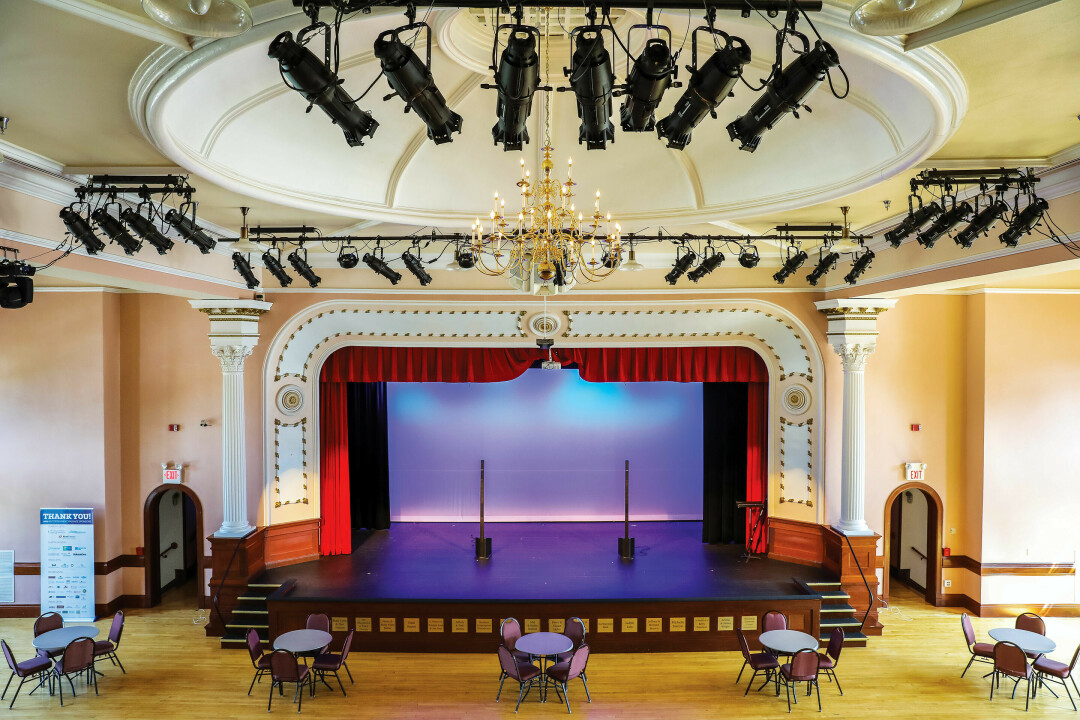
Take for example the Heyde Center for the Arts in Chippewa Falls, which costs $25,000 a month to keep up and humming – which is nothing compared to larger venues, according to Executive Director Deb Johnson.
When their biggest fundraiser, Savoring the Arts (which also celebrated the institution’s 20th anniversary) was cancelled in April, Johnson estimates the center took a hit of $150,000 – roughly one-third of their annual budget.
The Heyde Center launched its House Concert Series and a new Tik Tok account during pandemic times to keep the center present and relevant. With the help of one of their interns, they’re also launching a new podcast at the end of October titled “Ghosted.” But, despite the way they soldier onward, this is not the way they’re meant to operate.
“I’m really, really hoping that we don’t think that we don’t need live performances,” Johnson said. “We cannot replace the fact that the arts are really touching other human beings – and a lot of that has to do with being there, and being present in the moment.”
Burke, of 200 Main, says artists themselves have been impacted perhaps more than venues, as locals can’t view galleries, art supporters don’t have the extra funds, classes have been canceled, and local artists have had their income cut or eliminated because they rely on art shows, which have since been canceled.
“Arts, culture, and creativity are one of those three key sectors that drive regional economies,” Burke said. “Any lasting damage to the creative sector will drastically undercut our culture, well-being, and quality of life.”